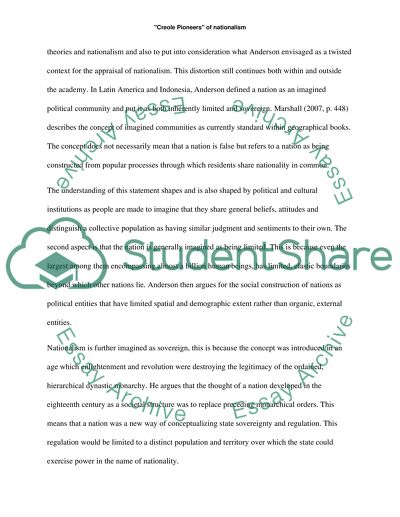Cite this document
(What is Nationalism Essay Example | Topics and Well Written Essays - 2000 words, n.d.)
What is Nationalism Essay Example | Topics and Well Written Essays - 2000 words. Retrieved from https://studentshare.org/history/1565609-analyse-the-condition-in-which-american-nations-became-according-to-benedict-anderson-creole-pioneers-of-nationalism
What is Nationalism Essay Example | Topics and Well Written Essays - 2000 words. Retrieved from https://studentshare.org/history/1565609-analyse-the-condition-in-which-american-nations-became-according-to-benedict-anderson-creole-pioneers-of-nationalism
(What Is Nationalism Essay Example | Topics and Well Written Essays - 2000 Words)
What Is Nationalism Essay Example | Topics and Well Written Essays - 2000 Words. https://studentshare.org/history/1565609-analyse-the-condition-in-which-american-nations-became-according-to-benedict-anderson-creole-pioneers-of-nationalism.
What Is Nationalism Essay Example | Topics and Well Written Essays - 2000 Words. https://studentshare.org/history/1565609-analyse-the-condition-in-which-american-nations-became-according-to-benedict-anderson-creole-pioneers-of-nationalism.
“What Is Nationalism Essay Example | Topics and Well Written Essays - 2000 Words”. https://studentshare.org/history/1565609-analyse-the-condition-in-which-american-nations-became-according-to-benedict-anderson-creole-pioneers-of-nationalism.


